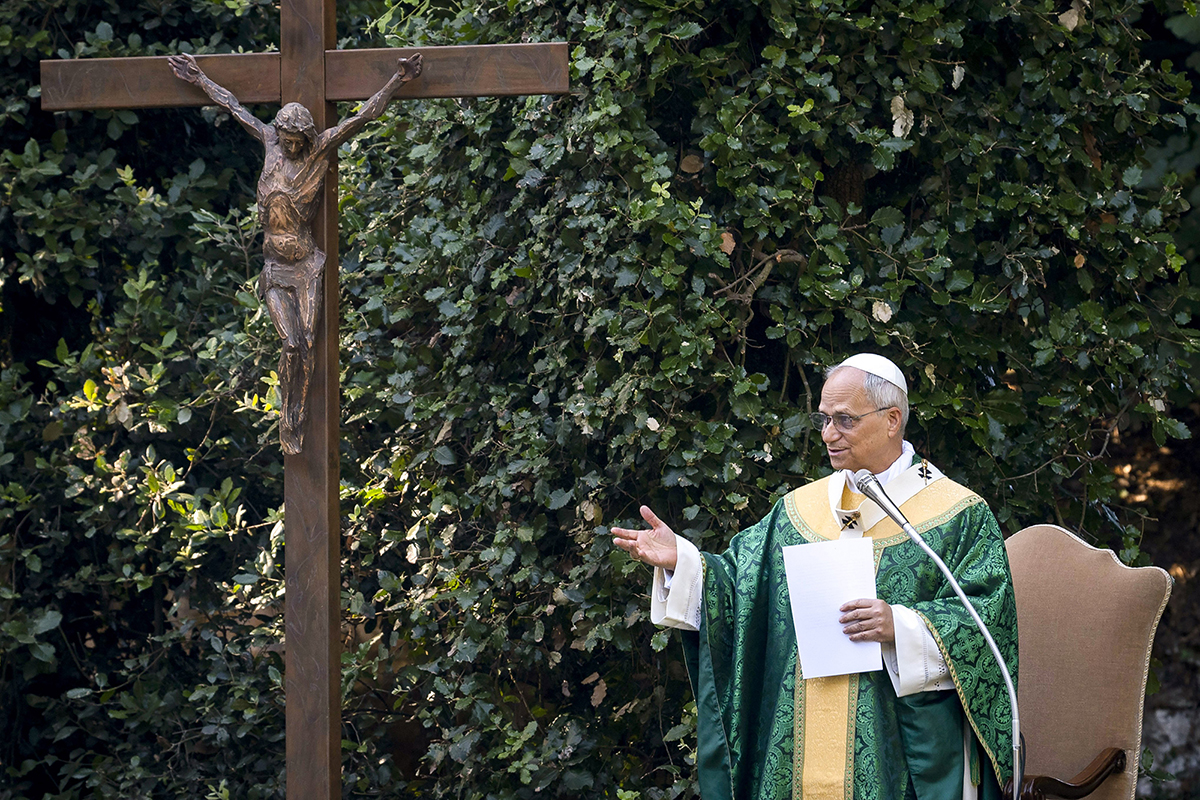SERVE THE LORD WITH GLADNESS | Like the parable of the sower, we’re called to spread the Good News
People will receive the message in different ways, while we are free from the need to manage their responses

Dear brothers and sisters in Christ,
We read a beautiful sequence from the Acts of the Apostles this week, while also walking slowly through the Bread of Life discourse from the Gospel of John. Together, these readings teach us something important about proclaiming the Gospel.
In the Acts of the Apostles, we first hear about St. Stephen. He proclaims the truth about Jesus, and he’s stoned for it.
Next we hear about St. Philip. He proclaims the truth about Jesus, and his proclamation is received with great joy.
Finally we hear about St. Paul and his radical opposition to the Gospel. Then we hear about how, after encountering Jesus on the road to Damascus, he’s converted.
These episodes, taken together, are a living illustration of the parable of the sower. Sometimes the proclamation of the Gospel is met with flat-out rejection. Sometimes it’s received immediately with great joy. And sometimes it overcomes opposition and brings about conversion.
The Bread of Life discourse in John 6 is one of several extended discourses in John’s Gospel, and we can’t read it without thinking of the others. In all of them, Jesus invites His hearers to grasp the truth about His identity. The invitations have different outcomes.
When Jesus talks with the Samaritan woman at the well in John 4, there’s a lot of back and forth! But the Samaritan woman stays with Jesus through the conversation. By the end she’s converted, and leading others to belief.
When Jesus talks with Nicodemus in John 3, there’s also a lot of back and forth. Nicodemus leaves that conversation as he came: in the dark. Still, the conversation must have continued to rattle around in Nicodemus’ heart and mind because, when he shows up again in John 7, he draws a little closer to Jesus, and when he shows up in John 19, he’s all in. The conversion of the Samaritan woman was immediate. With Nicodemus it was slower.
When Jesus initiates a similar conversation with Pontius Pilate in John 18, Pilate simply refuses to follow. He dismisses Jesus’ invitation with a throwaway line: “What is truth?”
The Bread of Life discourse, for its part, ends in division. Confronted with a hard word, some people stay with Jesus and some people leave Him.
All of these contain an important point for our reflection. Our commission is to proclaim the Gospel — to “go out to all the world and tell the Good News.” Our commission is not to go out to all the world and manage people’s reactions to the Good News. Sometimes we spend a little too much time and energy on the second.
Jesus didn’t try to manage everyone’s reactions to the Gospel. He proclaimed it, in word and deed. How people responded was up to them. When Jesus says, at the end of the Bread of Life discourse, “No one can come to me unless it is granted him by my Father” part of what He’s saying is: “I am utterly free from the need to manage people’s reaction to this invitation.” We need to own that freedom, too.
As we hear the readings this week, may the Lord grant us greater freedom: freedom for proclaiming the Good News, and freedom from the compulsion to manage people’s reactions to it.





